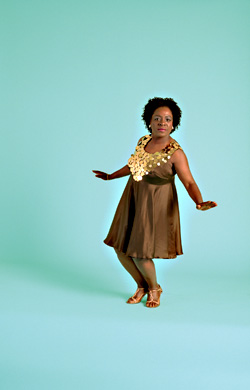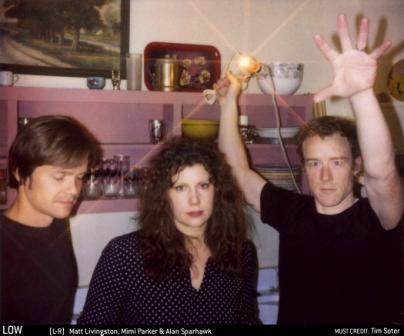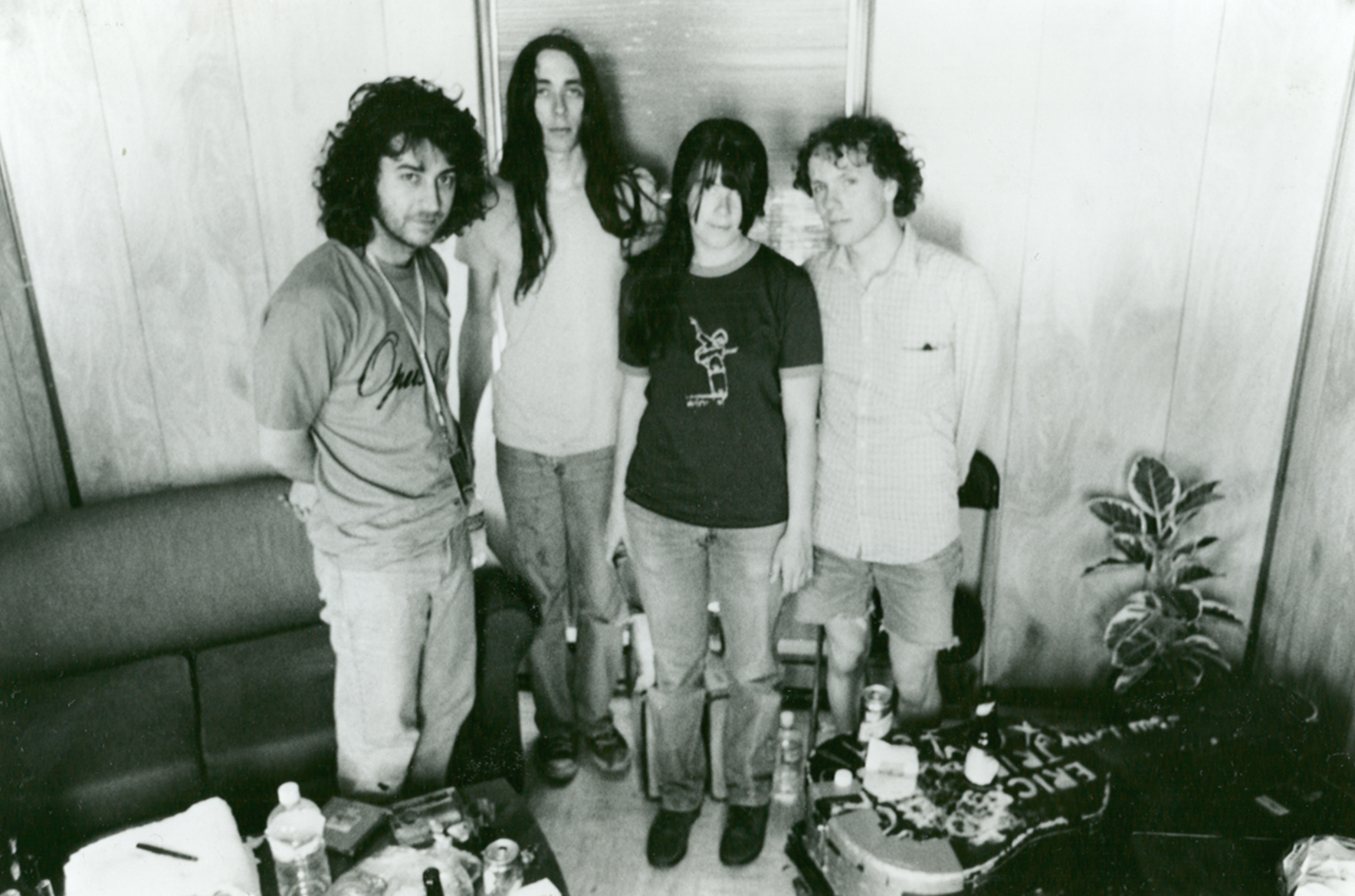What do Luther Vandross, Lauryn Hill, and a young(er) Ne-Yo have in common? Before they were famous, they were booed off the stage at the Apollo, the legendary Harlem theater with one of the toughest audiences in show business. James Brown, whose Live at the Apollo is considered one of the most incendiary albums of all time (and whose body was briefly put on view there last year), first graced that stage as a “nervous wreck” in 1959. And even Billie Holiday, story goes, had to be pushed onto it. Not Sharon Jones. The 51-year-old singer for the “retro” soul outfit the Dap-Kings avoided that scene altogether until this past October, when her group kicked off their current tour with their name on the Apollo marquee.
“People stood up and screamed from the time I was on until the time I went off,” Jones says with obvious excitement, noting that Vandross was booed not once but “four or five times” and that Ella Fitzgerald and other greats got their start there. “Some friends asked why I didn’t [play there] years ago, and I said, ‘If I go there, and they boo me, I’ll never be able to sing again!’ But I’m so glad I stood to that and when I did go, I was headlining.”
The vivacious singer says the crowd’s disapproval can have as much to do with your dress or hairstyle, the MC pronouncing your name wrong, or the crowd’s inebriation as it does with your true ability, making a first-time performance an intimidating gamble. But now that Sharon Jones and her Dap-Kings are on their third album, 100 Days, 100 Nights, they’re far from amateurs. Their live show has been pleasing crowds since the late ’90s, when Jones met bassist and songwriter Gabriel Roth and the duo formed the Soul Providers. In 2000, they became the Dap-Kings, an eight-piece, horn-driven band that has pushed some of the most satisfyingly old-school soul into the 21st century.
The band began getting major attention for 2005’s Naturally, particularly when people couldn’t place it as a modern soul album. Former Seattle Weekly music editor Michaelangelo Matos makes this distinction between neo-soul and retro soul: “[T]he point of retro is that it replicates old textures and styles faithfully; ‘neo’ reaches back while remaining in the present, sonically.” So while artists like Hill and D’Angelo exemplify the latter, it’s artists like Jones and Amy Winehouse, arranged to sound like a transmission from the ’60s but singing about Slick Rick and orgasms (“this is when my buzzer goes”), who make you stop and say, “What?! Where did this come from, and has it always been around?” Roth creates that illusion as the mastermind behind Brooklyn’s Daptone Records, which releases all the band’s albums, as well as work from experimentalists such as the Budos Band (“instrumental Staten Island Afrosoul”) and the Sugarman 3 (featuring Dap-Kings saxophonist Neal Sugarman). The label has been given much credit for reviving a pure, all-analog sound that winds up turning Sub Pop kids on to Stax.
At last year’s Bumbershoot, the Dap-Kings proved their luminosity to Seattle, unintentionally presenting a comparison between hipster-fied funk and the gloriously authentic real deal when they followed British soul singer Jamie Lidell on an outdoor stage. Lidell wore a silver sequin top and vocally channeled the soul greats, while attacking the songs’ structures with modern electronics and a cut-paste-and-loop sensibility. Although he doesn’t lack stage presence, it was an overworking of machines that eventually (literally) set the speakers on fire. A disbelieving audience didn’t know what to expect next. The Dap-Kings were introduced to the stage by guitarist and announcer Binky Griptite. Jones appeared in a gold sequin dress, with an energy so infectious on songs like “Be Easy” and “Answer Me” that I believe the crowd forgot about Lidell’s pyrotechnics. During our interview, Jones praises the dancing skills of Justin Timberlake and Beyoncé (“I call her ‘Bouncy'”), but Jones’ own prowess in bumps, grinds, and shimmies is nothing to shake a stick at. Informed with the subtle knowledge of experience, they’re far sexier than the drop-it-like-it’s-hot moves of the dancers Justin faux-fucked in his Tacoma Dome show this fall. A lifelong performer, Jones has sung for decades under many guises, be it part of a combo, wedding band, or church choir. Her ease with an ensemble and with the public is palpable when she’s out in front.
“When I’m on that stage and in front of the band, they’re feeding off of me. I’m feeding off myself and what God has given me, and then looking at the audience. That gives me that extra little oomph, that get-up-and-go,” says Jones, who routinely chooses a dance partner from the audience.
The Dap-Kings’ growing notoriety beyond the college radio circuit has a lot to do with Ms. Winehouse, whom the Dap-Kings (sans Jones) backed on tour before Winehouse’s recent troubles. Their platinum copy of Back to Black, to which the band contributed heavily, rests in their studio. “They didn’t want me and Amy together; they just wanted the Dap-Kings. We have a different style, but if we could’ve put those two together, it could’ve been nice,” says Jones. “You gotta look at her like this: Amy and the Dap-Kings got us MTV, got our stuff played on the mainstream. They hear that I inspired her singing, so that’s good for me. To me, that’s like my album hanging on the wall. It shows you that something I’ve been doing, someone is paying attention, and that’s a good thing.”








